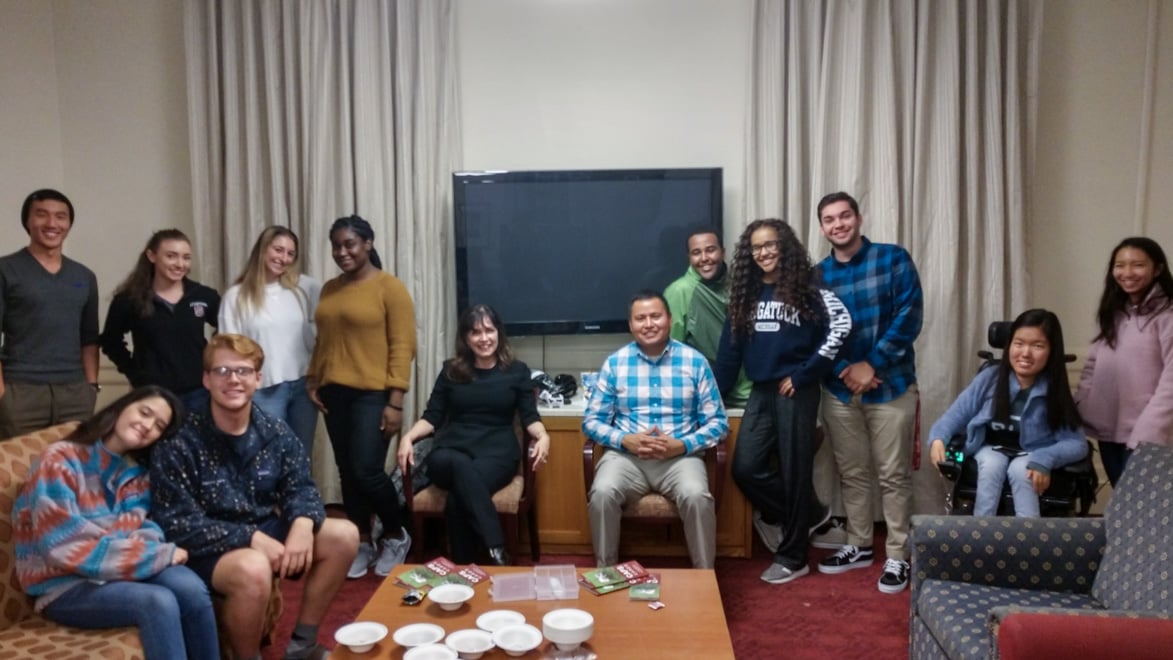The Sophomore Class Cabinet hosted Counseling and Psychological Services (CAPS) counselors Julia Anable and Gerald Shorty on Tuesday in an event publicizing the types of services CAPS offers to undergraduate students and its relationship with the student body.
According to the Sophomore Class Cabinet, they organized the event — dubbed a “Kickback with CAPS” — centered around the resources available to sophomores, aiming to start a longer discussion about mental health on campus.
Anable and Shorty stressed the need for students to appeal to the administration to jumpstart reform of mental health issues on campus.
During the Q&A, students expressed concerns that CAPS is seen as intimidating, and that students may be unaware of some of the resources CAPS provides.
In response, Anable highlighted multiple CAPS services including CAPSConnect, which consists of shorter sessions where students have the opportunity to build relationships with a specialist. Anable also mentioned on-call staffers — who are available for urgent walk-in appointments — and satellite clinics, places on campus where students can meet with CAPS therapists outside of Vaden Health Center, where the main CAPS office is held.
“There are a lot of students who aren’t comfortable going to Vaden for a variety of reasons,” she said. “They heavily utilize our community and group outreach. We’ve really ramped that up in the last two to three years, and [appointment] slots are always full.”
Anable also discussed wellness workshops and group therapy sessions as other ways students could engage with CAPS. Currently, CAPS hosts three-session workshops to help students practice mindfulness and manage anxiety.
“Groups allow us to serve more people and give more help, so the workshops have been really important,” she said.
Moreover, Anable addressed CAPS’ current understaffing problem. According to Anable, seven CAPS staff members have resigned since June, and two more have recently gone on maternity leave. Anable mentioned that, as a result, some students might need to wait three to four weeks before sitting down with a CAPS counselor for an appointment. Anable stressed, however, that CAPS is constantly looking for new counselors to fill their openings.
Another challenge CAPS faces, according to CAPS counselor and postdoctoral fellow Shorty, is that “the demand for [mental health] services is increasing every year.”
“There needs to be constant change and adjustment to meeting these needs,” he said.
Anable called on students to engage with CAPS and to change the narrative it has on campus.
“The most powerful voice on campus, even if you don’t always feel it, is yours,” she told the students in attendance.
She encouraged the audience to demand more services, more sessions and more staff from the administration.
Sophomore Class Cabinet members David Pantera ’21 and Sophomore Class President Celine Foster ’21 expressed that they hope that the event is the start of a long-term dialogue with CAPS that changes the narrative the service has on campus.
“Anytime we can have events where we’re able to communicate questions, concerns [and] issues from students and also hear words of advice from CAPS and help dispel myths is a huge step for transparency,” Pantera told The Daily after the event.
“This is the first step in us having a longer dialogue with CAPS but it’s also for the sophomore class, to engage in a longer dialogue about mental health and wellness on campus,” Foster added.
Overall, the two believe that this event was a success, one of several that the cabinet believes they have hosted this year.
“A lot of people attend [our events], a lot of people love it… we blow our attendance expectations,” Pantera said. “It’s not just sophomore cabinet success, but it’s more so the willingness of our grade to really step up and create bonds.”
Contact Michael Espinosa at mesp2021 ‘at’ stanford.edu.
